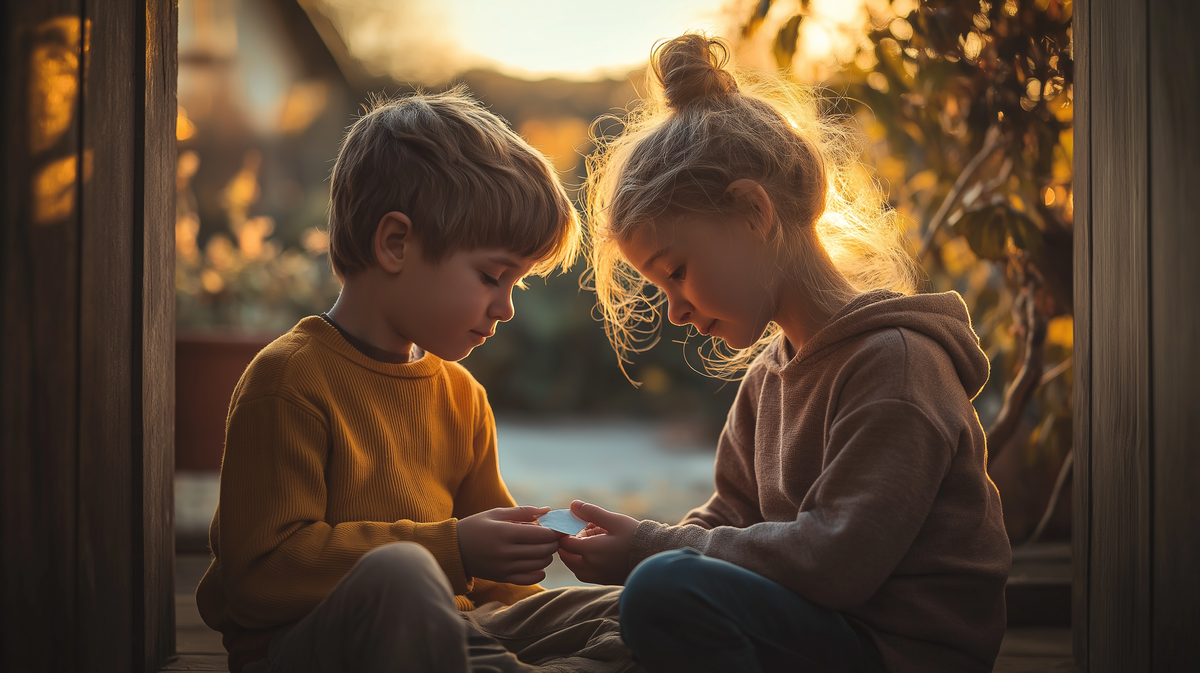Empathy is an important skill that helps kids connect with others and understand their feelings better. It’s all about building those deeper connections and nurturing emotional intelligence! In this friendly guide, we’ll take a look at when children start to develop empathy, how to tell it apart from selfish behavior, and some fun ways parents can encourage it. We’ll also share age-specific milestones and helpful techniques to support your child’s emotional journey. Let’s dive in together!
- When Do Children Develop Empathy?
Empathy develops gradually as children grow.
Here’s what you can expect at different stages:
Infants (0-2 years): Babies are naturally curious about the feelings of those around them. It’s sweet to see that they might start to cry when they hear another baby crying, which shows their early sense of empathy!
Toddlers (2-3 years): They begin to care for others and often find ways to offer comfort, like sharing their toys or giving a warm hug to someone feeling down.
Preschoolers (3-5 years): Kids start to grasp the idea that other people have feelings too, and they become better at showing empathy!
School-age (6+ years): This is the time when empathy really grows! Kids start to grasp how others feel and can show their understanding more thoughtfully, like giving kind words of support or lending a helping hand.
Nurturing Empathy: Practical Tips for Parents
Show Empathy Together: Kids learn a lot by watching us! Make sure to display empathy in your interactions. Try using reflective listening and acknowledging how others feel. It’s a great way to model caring behavior.
Explore Different Perspectives: Get creative with storytelling or role-playing! These activities can help your child understand how others might feel in different situations. Our Happy Hands World storybooks are fun, featuring therapeutic strategies like Cognitive Behavioral Therapy (CBT) to dive into those perspectives.
Talk About Feelings: Don’t hesitate to label emotions when you see them in everyday life or during playtime. This can help kids understand and express their own feelings and recognize what others might be feeling. It’s all about building Emotional Literacy!
Encourage Teamwork: Engaging in activities like building with sensory kits is a fantastic way to promote sharing and cooperation. Our kits are specifically designed to inspire empathy through fun and collaborative play!
Mindfulness Exercises: Mindfulness exercises help children become more aware of their own emotions and better understand others'. Try simple exercises like deep breathing or focusing on the present moment.
Empathy vs. Egoistic Behavior
Understanding Empathy and Egoism with Kids
Empathy is all about connecting with someone else's feelings, while egoistic behavior is more about focusing on what benefits you personally. It’s important for kids to grasp this difference!
Example of Empathy: Sharing toys when they notice a friend is feeling down.
Example of Egoism: sharing toys just to earn praise or to get something back, like another toy.
Fun Ways to Foster Empathy:
- Reading Together: Choose stories with diverse characters and rich emotional experiences. Talk about how the characters feel and what they do. This helps build empathy through Narrative Therapy!
- "How Would You Feel?" Game: Play a fun game where you ask your child how they’d feel in different situations. This encourages them to think about others' feelings and enhances their emotional understanding through Perspective-Taking Techniques.
- Empathy Jar: Every time your child shows kindness or empathy, add a token to a jar. When the jar is full, celebrate together! This is a great way to use Positive Reinforcement.
- Create Empathy Scenarios: While using sensory kits, come up with little scenarios where your child can practice being empathetic, like comforting a toy that "feels sad."
- Daily Reflection: At bedtime, chat about one kind thing they did or saw someone else do. This promotes Self-Reflection and helps them notice the importance of empathy in everyday life.
By including these activities in your routine, you help your child gain a deeper understanding of empathy in a playful and engaging manner!

